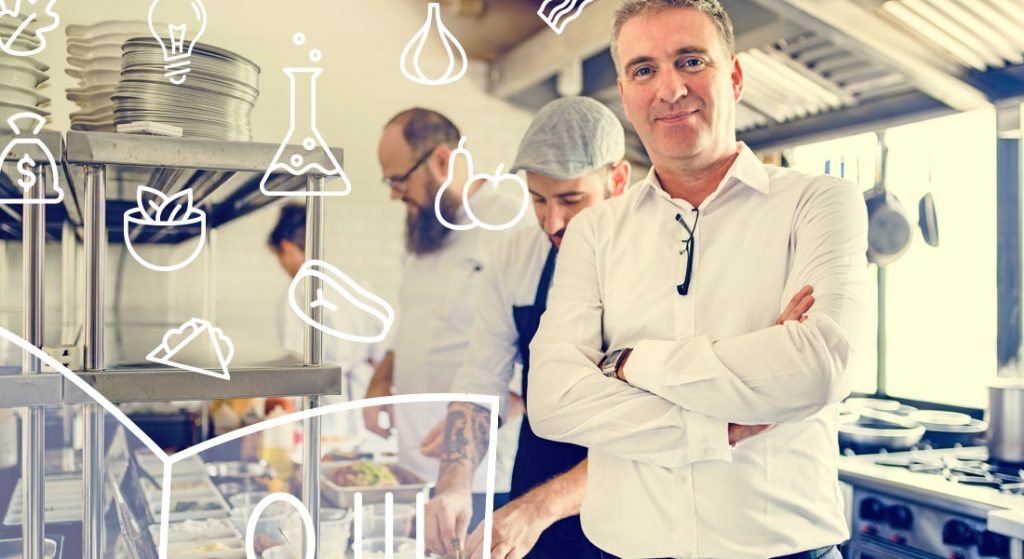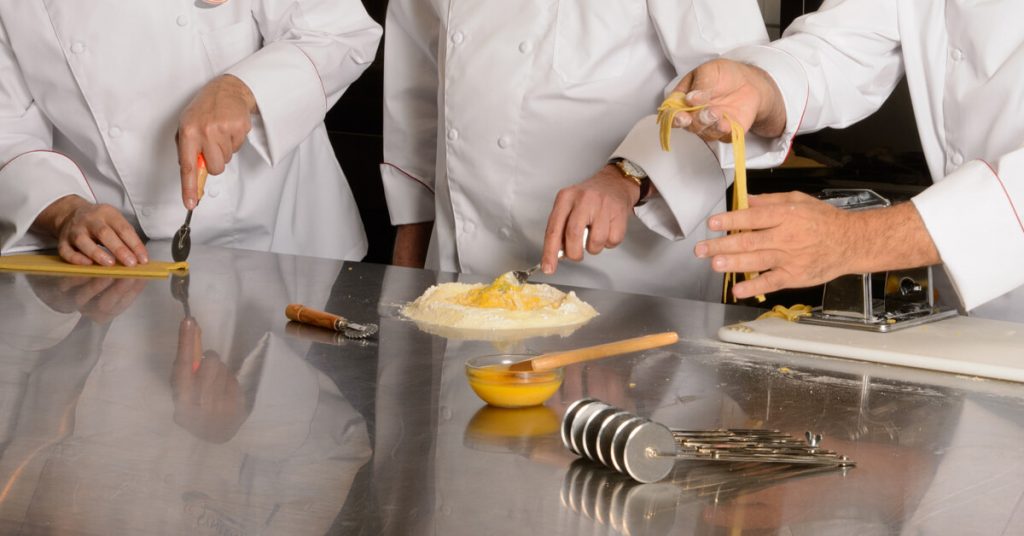
Overview
Savvy business people are careful in making decisions in entrepreneurship. They dissect the market in details and identify business problems that need to be solved. In short, you cannot make a mistake in starting a business. If you make a mistake, you are going to lose time and resources.
If there is an area which has a potential for growth, then that area is the food consulting niche. To state the obvious, people will always need food. As far as you have a concrete plan on what you are planning to do, you can never go wrong in the food industry because there is a ready market. This article will guide you on the most effective ways of being a food consultant:
Definition
A food consultant is an expert in the food industry who provides expert data and information to food production businesses, restaurants, and the retail food companies. Most of the contracts and positions on food consultancy are short term opportunities, whereas some are long term working opportunities.
The Food Service Consultants Society International defines a food consultant as a food expert, working independently, who for a certain scope of work and determined fees, helps professionals working in the food industry to achieve their goals. In other words, food consultants work to promote the business opportunities and efficiency of the organizations that they serve.
Food consultants can work as employees, or independently. On one hand, working as an employee offers a steady and predictable income but limited opportunity for expansion. On the other hand, working independently comes with higher risk, higher rate of compensation, and a wide expansion space.
A food consultant can offer general or specific skills. Specific skills provided by a food service consultant include competitive intelligence, new products, market research, advertising, and public relations. It is better to narrow down the business options. Focusing on a few business endeavours ensures that one is able to offer quality.

Requirements: Education and Skills
Whereas formal college education is not necessarily compulsory in starting a food consulting business, you definitely need an education on the same. Working for a college degree is perhaps one of the most opportune moments that can turn around your management skills. Again, when you are taking a college degree, you are exposed to experienced lecturers who have travelled the world, and understand the food industry.
The food industry does not have a shortage of degree programs, courses which are directly or indirectly related to food. The decision on the degree to take should be made after a careful consideration on the career path that one needs to take. In other words, start with taking a career decision, and then take a degree course. You can make a career decision through taking doing a thorough internet research, taking an internship, taking a gap year, or having conversations with professionals in the industry.
There are a few people who choose to continue with the field to a master degree. This can carry a lot of opportunities for you. However, it should be a careful decision because a master is expensive and takes time. You do not need a master to succeed in the food industry, but it can obviously add to your portfolio.
Programs that you can enroll in include the following:
-Food and nutrition
-Wellness studies
-Culinary arts
-Food and beverage programs
-Agricultural programs
-Business degree
If for one reason or the other you are not able to take a college degree, think about taking other shorter courses and combine this with experience. By the end of the day, what clients look for is their satisfaction. If you are able to meet and exceed the expectations of your clients, then there is no need to worry much about your education.
Menu preparation and food development is one of the most critical parts of being a food consultant. In fact, this cannot be compromised by any means. If you are to succeed in this, you must read widely. Be sure to appreciate variety and variation in your menu development. The end consumer will need value for the money, and you have to be sensitive to this if your client is to realize a high rate of return on investment.
Like any business, being a food consultant requires a number of soft skills. Communication skills cut across the business spectrum. Closely connected to this is the need to learn the art of communication more so in public. If you do business beyond the US, cross-cultural communication is a matter of paramount importance. For example, wine is part and parcel of the French cuisine, both as part of the ingredients or as an accompaniment.
As a food consultant, you will face a public relations problem at one stage or the other of your career. How you handle a public relations crisis will have a great bearing on the success of your food consulting business or lack of it thereof. Some food companies have been wiped out after facing a public relations crisis.
As far as you are working in the US, you have to be sensitive to the cultural factors shaping the country. The US is built on diversity, and your business should be a reflection of this. If you become a well-established food consultant with a team of employees, be sure to have a cultural mix among your team members.

Roles and Responsibilities
In a nutshell, the following are the roles and responsibilities of a food consultant (scope of assignment):
-Has to be highly knowledgeable on the food industry
-Specialized in a certain area (an expert in a certain area)
-Has the ability to offer objective expertise
-Involved for a certain amount of time (a limited amount of time)
-Is an advocate for the clients and protects their interests
It is your responsibility to offer healthy food to your consumers. For example, read materials written by the American Dietetic Association and you are going to learn the best practices of preparing healthy food. Be conscious about the various health issues facing Americans. For example, a significant part of the American population is obese, and you do not want to make the problem worse. At the same time, do not recommend a food product that has been a matter of controversy in the public. Seeking the opinion of health authorities will help you protect your clients.
As a food consultant, the advice you give should be based on rational decision making and should be sound by all means. For example, when you are advising your business on the best financing methodology, be sure to make an informed prediction of a new finance policy. If you put your client into unmanageable debt, such a client could pay high interest rates and be pushed out of business. In order to be a better professional, be sure to compare notes with other professionals in the industry. You need to study the market, and identify the trends in the food industry.
The modern industry is changing drastically in terms of offering value to the consumers. You need to contribute towards making the world a better place. For example, be careful to evaluate your role in the food supply chain and do not source products from companies which do not respect their employees. At the same time, support efforts to manage climate change. The modern food consultant office can make use of green products and strategies.
Marketing and Client Relationship
You need to think about the incentives that you can offer to your clients. For example, the ability to deliver food to your clients has far reaching consequences in increasing your bottom-line. With the busy American workplace, employees may not get time to go out and eat. But when the same food is made available to them, they are going to buy eat. Similarly, when some Americans are not working, they like staying indoors, and prefer making orders online or via calling. In short, it is you to go where your customers are.
You need to encourage your client base to have fun with food. They ought to experiment on new types of food rather than sticking to what they already know. For example, you could introduce exotic food to your clients. This will help them learn life beyond the American boarders and they will definitely appreciate cultural exposure.
Search Engine Optimization (SEO) has far reaching implications on the food industry. The use of SEO could help you attract credible leads. In addition to that, it will help you rank high in the search engines. The consumer buying process starts with the identification of the problem, and proceeds to the search of the product or service. In the food industry, a high ranking website will enhance the visibility of your food company.
A critical part of SEO and the food industry is local SEO. When one needs food, there is a need for instant gratification. Therefore, one is going to check the nearest place where one can get food. SEO will help you to exploit the opportunities that come with local SEO in order to tap the food market. In addition to that, a significant number of restaurants serve the local clientele.
Whereas you can have a Do It Yourself (DIY) SEO strategy, it is better to consider a marketing agency. Such an agency is going to help you in creating realistic SEO objectives. In addition to that, you are going to invest in consequential SEO strategies. Marketing agencies offer a wide range of services you can benefit from. Again, if you use a marketing agency, you are going to concentrate on other business activities such as the day to day running of the business or business expansion.
You need to appreciate the need of retaining your client base. One way of doing this is to ensure that you offer loyalty points if you can. Customers love being appreciated, and they like a relationship that extends the normal business-client relationship. If you offer excellent services to your clients, you are going to realize that they will give you the much needed referrals.
When clients are looking for a food consultant, they look at several factors and you need to be aware of them. These include the following:
-The number of years the food consultancy firm has been in service, here, the older, the better. Naturally, clients prefer old institution (however, if you are a new firm, you can still market yourself in other ways, eg, offering a discount)
-The review that other clients have left about their experience with you
-The ability to meet deadlines
-Your business strategies
-Your availability
-The cost and other payment incentives
When you are serving your clients in any business, you need to avoid conflict of interest. As a food service consultant, do not give advice that is going to directly benefit you. Again, do not be a competitor to your clients. Remember, your clients have trusted you in the direction of your business. Therefore, it would be an act of betrayal to give advice that is not based on the facts in the market, but rather, your potential benefits. Closely connected to this, food consultants should be sure to operate within the confines of business ethics. If you do not follow sound and ethical business practices, you could face a lawsuit.
Lastly, you need to position yourself for the future. If you are dealing with a very narrow niche, then it is time you thought of diversification. It is true that a very narrow niche will lead to specialization and better quality, but diversification ensures that risk is spread out and one has an option should things go wrong.
Conclusion
The food industry is going to grow. At the moment, the American population stands at 328 million, and is going to realize more growth through births and immigration. You can strategically position yourself as an esteemed and highly skilled food consultant, and you will be surprised at the business opportunities awaiting you.